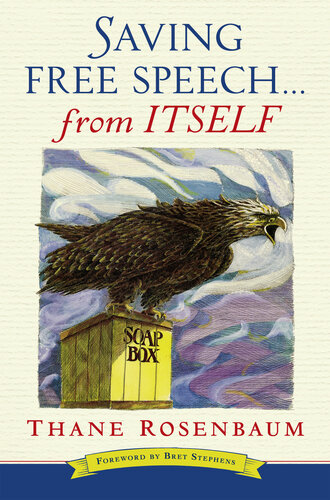
Saving Free Speech...from Itself
کتاب های مرتبط
- اطلاعات
- نقد و بررسی
- دیدگاه کاربران
نقد و بررسی

January 20, 2020
In this somewhat convoluted treatise, Touro College law professor Rosenbaum (Payback: The Case for Revenge) argues that certain limits on free speech are not only constitutional and in line with previous case law, but are essential for the maintenance of civil society and personal dignity. Contrasting First Amendment absolutism with European statutes recognizing a right to dignity and criminalizing hateful and inciting speech, Rosenbaum asserts that the European model is more in line with what the founding fathers intended. His appeals to authority (“consider what George Washington would do”; an interpretation of Talmudic law that equates social humiliation with murder) are less effective than discussions grounded in law and science, including his arguments that not all speech rises to the level of an idea and that tort law should take into consideration neuroscientific evidence on the lasting impact of harassment on the human brain. Such valuable insights are obscured by overreaching claims (“Behind every free speech absolutist lurks a cyberspace bully and college campus censor”), however, and readers may struggle to square Rosenbaum’s recognition that words can cause emotional damage with his disdain for political correctness on college campuses. In seeking to draw the line between what should be protected speech and what shouldn’t, this less-than-persuasive account mainly succeeds in showing how complicated and tendentious such a process might become.

























دیدگاه کاربران